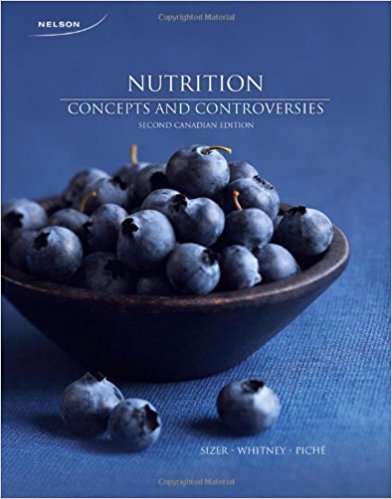In Stock
Test Bank For Nutrition Concepts And Controversies 2nd Edition by Ellie Whitney Frances Sizer
Digital item No Waiting Time Instant Download
Original price was: $75.00.$25.00Current price is: $25.00.
Test Bank For Nutrition Concepts And Controversies 2nd Edition by Ellie Whitney Frances Sizer
Chapter 2-Nutrition Tools—Standards and Guidelines
MULTIPLE CHOICE
1.Which of the following is an appropriate use for dietary reference intakes (DRI)?
a.
ensuring that maximum nutrient requirements are met
b.
estimating the nutrient needs of persons with medical problems
c.
planning diets for population groups such as military personnel
d.
estimating the inadequacy of an individual’s nutrient intake
ANS: C PTS: 1 REF: Page 30
2.Which of the following standards establishes population-wide average requirements used by nutrition policymakers?
a.
Daily Values (DV)
b.
Recommended Dietary Allowances (RDA)
c.
Recommended Daily Allowances (RDA)
d.
Estimated Average Requirements (EAR)
ANS: D PTS: 1 REF: Page 29
3.Which of the following statements about the dietary reference intakes (DRI) is the most accurate?
a.
They are for healthy individuals.
b.
They are based on review of available testimonials.
c.
They are published by a committee composed of dietitians.
d.
They are maximum requirements, not recommendations.
ANS: A PTS: 1 REF: Page 31
4.For which of the following reasons would a nutrient NOT have a tolerable upper intake level (UL)?
a.
No food contains toxic levels of nutrients.
b.
Insufficient data exist to establish a value.
c.
No caution is required when consuming supplements of that nutrient.
d.
It is safe to consume in any amount.
ANS: B PTS: 1 REF: Page 30
5.Which of the following statements about Daily Values (DV) is the most accurate?
a.
They apply to healthy people only.
b.
They are the best way to compare the nutritional content of different foods.
c.
They are not yet required on Canadian nutrition labels.
d.
They are useful as nutrient intake goals for individuals.
ANS: B PTS: 1 REF: Page 33
6.Which of the following recommendations with regard to oils and fats does the most recent version of Canada’s Food Guide make?
a.
Do not consume butter, lard, or shortening.
b.
Include at least 3 to 4 tbs (45 to 60 mL) daily.
c.
Choose soft margarines that are low in saturated fats and trans fats.
d.
Use vegetable oils such as coconut, olive, and palm kernel.
ANS: C PTS: 1 REF: Page 38
7.Which of the following food groups is located along the innermost arc of the rainbow depiction on the cover of Canada’s Food Guide?
a.
meats and alternatives
b.
milk and alternatives
c.
vegetables and fruits
d.
grain products
ANS: A PTS: 1 REF: Page 36
8.For which of the following elements of diet planning are exchange systems most useful?
a.
portion control
b.
adequacy
c.
calorie control
d.
balance
ANS: C PTS: 1 REF: Page 49
9.Which of the following is a key nutrient or other food component typically found in vegetables and fruits?
a.
vitamin B12
b.
trans fats
c.
fibre
d.
proteins
ANS: C PTS: 1 REF: Page 34
10.According to Canada’s Physical Activity Guide to Healthy Active Living, how long should individuals exercise each day?
a.
at least 50 minutes
b.
at least 40 minutes
c.
at least 30 minutes
d.
at least 20 minutes
ANS: C PTS: 1 REF: Page 34

Reviews
There are no reviews yet.